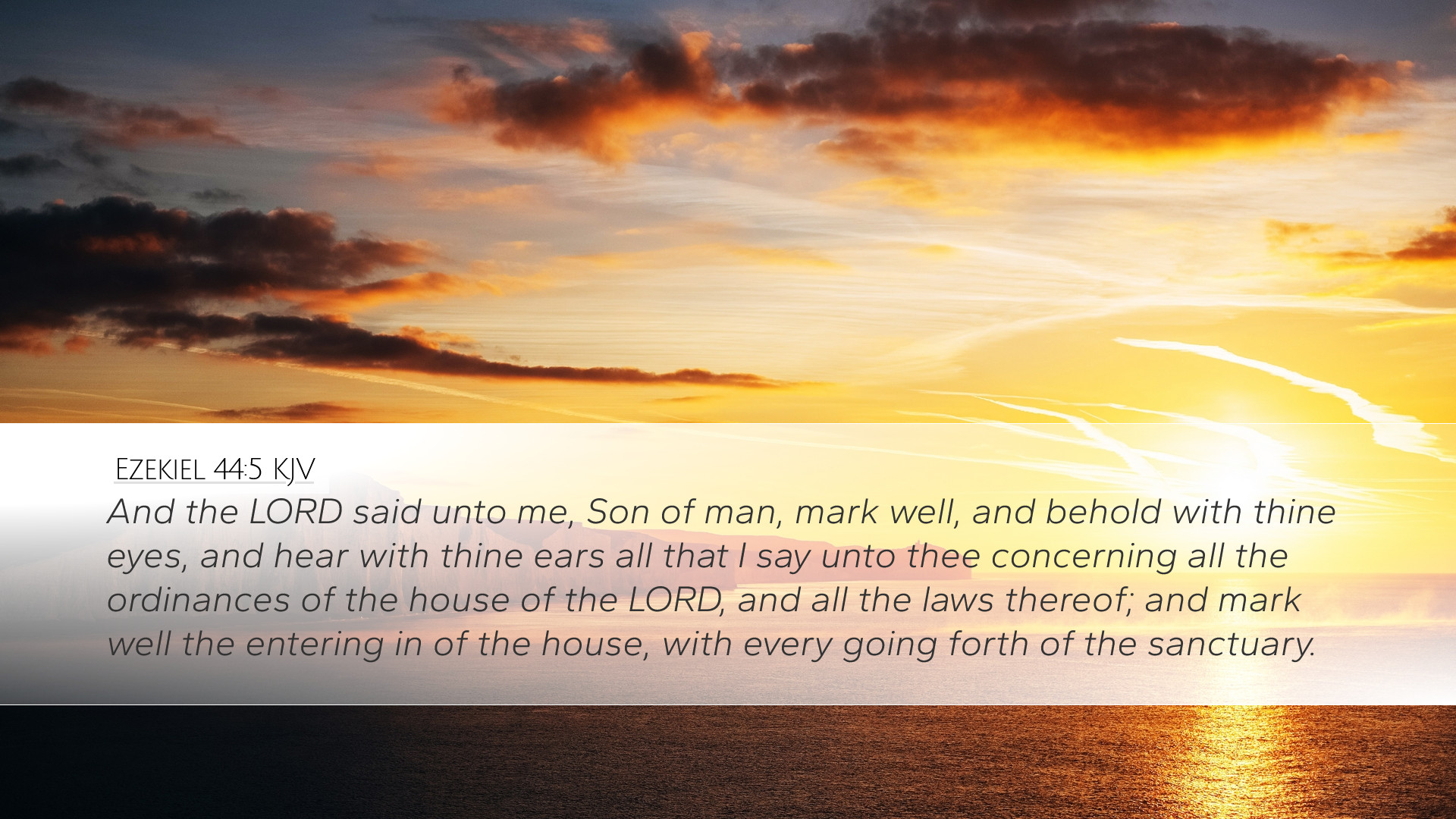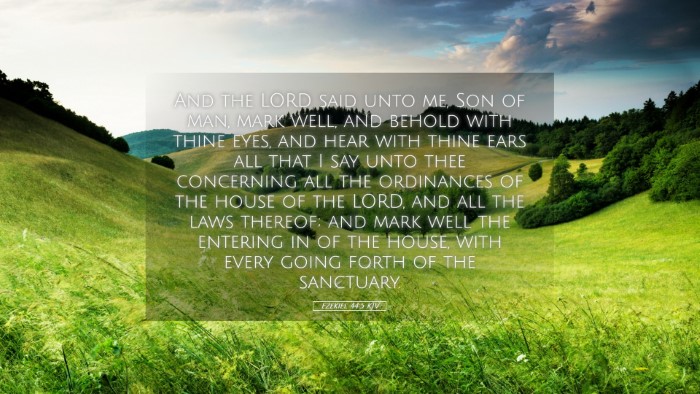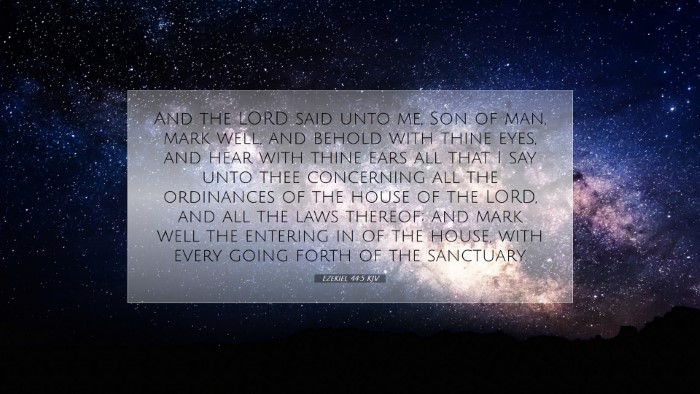Ezekiel 44:5 Commentary
Introduction
The verse Ezekiel 44:5 reads: "And the Lord said to me, 'Son of man, mark well, and behold with your eyes and hear with your ears all that I say to you concerning all the statutes of the house of the Lord, and all the laws of the house; and mark well the entrance of the house, with all the exits of the sanctuary.' This verse is pivotal in understanding the vision and the subsequent instructions regarding the temple, the priests, and worship in the restored Israel.
Contextual Overview
The book of Ezekiel addresses the condition of Israel during and after the Babylonian exile. Ezekiel, who is a prophet and priest, provides a series of prophecies about the judgment of God upon Israel followed by a promise of restoration. Chapter 44 pertains to the future temple and how it will function as a center of worship, focusing on the holiness that God demands of those who minister before Him. This chapter contrasts the responsibilities and privileges of the priests, especially in light of past failures.
Insights from Commentators
Matthew Henry's Commentary
Matthew Henry emphasizes the significance of obedience to God's commands in relation to the sacred space of worship. In his view, Ezekiel’s vision highlights the holiness of the temple and the necessary spiritual integrity of its ministers. He notes the importance of 'marking well' and 'beholding' – suggesting that attention to detail in spiritual matters is crucial. Henry argues that this call to observe is not merely for the sake of knowledge but for the purpose of conforming the practices of worship to divine standards.
Albert Barnes' Notes on the Bible
Albert Barnes provides a historical lens through which to view this verse, addressing the implications of the future temple's regulations for the Jewish people. He points out the directive to 'mark well,' indicating a prescribed attentiveness to the rules governing the temple, which reflects God’s order. Barnes elaborates on the necessity of following these statutes to prevent the errors of the past, showcasing a divine blueprint for worship that seeks to bring Israel back to a state of spiritual purity and dedication.
Adam Clarke's Commentary
Adam Clarke expands on the interpretative layers of this passage, diving deeply into the symbolic meanings of the temple structure and its entrances. He notes that the instructions given to Ezekiel represent a pivotal moment for Israel's restoration, where God's presence would once again dwell among His people. Clarke highlights the vital role of the priests and their utter dependence on God’s directives, suggesting that their integrity and service reflect the community's broader relationship with God.
Theological Reflections
This verse illustrates several profound theological themes:
- Divine Holiness: The emphasis on 'marking well' signifies the holiness of God, which stands at the core of worship. Ministers and worshipers alike must approach God with reverence and obedience.
- Restoration and Renewal: The instructions indicate a fresh start for Israel, highlighting that their previous failures can be redeemed through adherence to God’s laws and vigilance in worship practices.
- Spiritual Leadership: The priests are seen not only as mediators between God and man but also as examples of holiness and righteousness. Their commitment impacts the whole community.
- Community Involvement: The call to observe applies to the community of believers. It stresses that every individual has a role in maintaining the sanctity of worship.
Practical Applications
For pastors, theologians, and students, this passage offers valuable insights for contemporary ministry:
- Prioritize Holiness: In ecclesiastical duties, it remains paramount to maintain a standard of holiness. This can be a call to personal holiness in life and leadership.
- Focus on Obedience: Emphasizing God's statutes in ministry today corresponds to the desire for restoration. Church practices must align with Scripture to witness transformative power.
- Educate on Expectation: Much like Ezekiel’s role, today’s leaders must educate their congregations on the seriousness of entering and engaging with God’s presence in worship.
- Community Engagement: Encourage congregational observation and accountability, fostering a shared responsibility for maintaining the church's spiritual condition.
Conclusion
Ezekiel 44:5 is a call to deep spiritual awareness, inviting readers and scholars to reflect on the nature of worship, leadership, and community in accordance with God’s design. By aligning modern practices with the ancient temple instructions, today's church can mirror the profound holiness and divine order that the Lord desires in the lives of His people.


